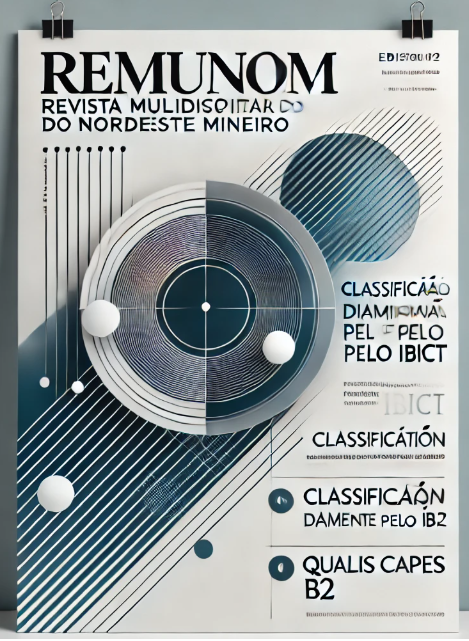DOAÇÃO DE ÓRGÃOS POST MORTEM NO BRASIL: A EFICÁCIA DA AUTONOMIA DA VONTADE FRENTE À RECUSA FAMILIAR À LUZ DO DIREITO, DA ÉTICA E DE MODELOS INTERNACIONAIS
POST-MORTEM ORGAN DONATION IN BRAZIL: THE EFFECTIVENESS OF AUTONOMY OF WILL IN THE FACE OF FAMILY REFUSAL IN LIGHT OF LAW, ETHICS, AND INTERNATIONAL MODELS
DOI:
https://doi.org/10.61164/rmnm.v13i1.4244Keywords:
doação de órgãos; autonomia da vontade; recusa familiar; direitos fundamentais; consentimento presumido.Abstract
This article critically analyzes the regulation of post-mortem organ donation in the Brazilian legal system, with emphasis on the legal and ethical limitations imposed by the requirement of family authorization, even in the presence of an explicit expression of the deceased's will. The research covers the historical evolution of national legislation, with particular focus on Law No. 9.434/1997 and the operation of the National Transplant System (SNT), examining the compatibility between the current legal framework and the constitutional principles of human dignity and autonomy of will. The legal effectiveness of personal self-determination after death is discussed, especially in light of the high rates of family refusal that hinder the realization of donations. The analysis is enriched by international experiences, particularly from countries that adopt the presumed consent model, suggesting legislative alternatives that reconcile the system’s efficiency with respect for individual freedom. The methodology employed is qualitative, based on bibliographic review, and legislative, doctrinal, and comparative analysis.
Downloads
References
ABADIE, Alberto; GAY, Sebastien. The impact of presumed consent legislation on cadaveric organ donation: A cross-country study. Journal of Health Economics, v. 25, n. 4, p. 599–620, 2006. DOI: https://doi.org/10.1016/j.jhealeco.2006.01.003
BRASIL. Constituição da República Federativa do Brasil de 1988. Brasília: Senado Federal, 1988.
BRASIL. Lei nº 9.434, de 4 de fevereiro de 1997. Dispõe sobre a remoção de órgãos, tecidos e partes do corpo humano para fins de transplante e tratamento. Diário Oficial da União, Brasília, DF, 5 fev. 1997. Seção 1, p. 1.
BRASIL. Lei nº 10.211, de 23 de março de 2001. Altera dispositivos da Lei nº 9.434/1997. Diário Oficial da União, seção 1, Brasília, DF, p. 2, 26 mar. 2001.
BRASIL. Ministério da Saúde. Portaria nº 2.600, de 21 de outubro de 2009. Aprova o Regulamento Técnico do Sistema Nacional de Transplantes. Diário Oficial da União, Brasília, DF, 30 out. 2009. Seção 1, p. 77.
CONSELHO FEDERAL DE MEDICINA (Brasil). Resolução CFM nº 2.173, de 23 de novembro de 2017. Define os critérios para o diagnóstico de morte encefálica. Diário Oficial da União, Brasília, DF, 14 dez. 2017. Seção 1, p. 79.
DINIZ, Maria Helena. Curso de Direito Civil Brasileiro – Parte Geral. 35. ed. rev. atual. São Paulo: Saraiva, 2019.
DWORKIN, Ronald. Levando os Direitos a Sério. São Paulo: Martins Fontes, 2002.
GARRAFA, Volnei; PORTO, Dora. Bioética, Poder e Injustiça. São Paulo: Loyola, 2003.
KÜBLER-ROSS, Elisabeth. Sobre a Morte e o Morrer. São Paulo: Martins Fontes, 2008.
MORAES, E. L.; MASSAROLLO, M. C. K. B. Family refusal to donate organs and tissue for transplantation. Revista Latino-Americana de Enfermagem, v. 17, n. 3, p. 309–315, 2009. Disponível em: https://www.scielo.br/j/rlae/a/HyQykLCh48P6FfNq4ykSvVQ/. Acesso em: 02 junho. 2025.
OLIVEIRA, A. F. C. G.; CARDOSO, R. A. B.; FREITAS, K. C.; LUCAS, B. L. G. Gaps and impediments to organ donation in Brazil: a literature review. Brazilian Journal of Transplantation, v. 26, 2023. Disponível em: DOI: https://doi.org/10.53855/bjt.v26i1.520_ENG
https://www.scielo.br/j/bjt/a/L4hh8XyJ4HMKkqyMxPN6pvS/?lang=en. Acesso em: 02 junho. 2025.
PEREIRA, Caio Mário da Silva. Instituições de Direito Civil. Vol. I. 25. ed. Rio de Janeiro: Forense, 2018.
SILVA, José Afonso da. Curso de Direito Constitucional Positivo. 39. ed. São Paulo: Malheiros, 2021.
TRAIBER, C.; LOPES, M. H. I. Educação para doação de órgãos. Scientia Medica, Porto Alegre, v. 16, n. 4, p. 178–182, 2006.
Downloads
Published
Issue
Section
License
Copyright (c) 2025 Revista Multidisciplinar do Nordeste Mineiro

This work is licensed under a Creative Commons Attribution-NonCommercial-ShareAlike 4.0 International License.
Authors who publish in this journal agree to the following terms:
Authors retain copyright and grant the journal the right of first publication, with the work simultaneously licensed under the Creative Commons Attribution License, which permits the sharing of the work with proper acknowledgment of authorship and initial publication in this journal;
Authors are authorized to enter into separate, additional agreements for the non-exclusive distribution of the version of the work published in this journal (e.g., posting in an institutional repository or publishing it as a book chapter), provided that authorship and initial publication in this journal are properly acknowledged, and that the work is adapted to the template of the respective repository;
Authors are permitted and encouraged to post and distribute their work online (e.g., in institutional repositories or on their personal websites) at any point before or during the editorial process, as this may lead to productive exchanges and increase the impact and citation of the published work (see The Effect of Open Access);
Authors are responsible for correctly providing their personal information, including name, keywords, abstracts, and other relevant data, thereby defining how they wish to be cited. The journal’s editorial board is not responsible for any errors or inconsistencies in these records.
PRIVACY POLICY
The names and email addresses provided to this journal will be used exclusively for the purposes of this publication and will not be made available for any other purpose or to third parties.
Note: All content of the work is the sole responsibility of the author and the advisor.



